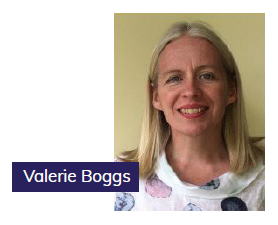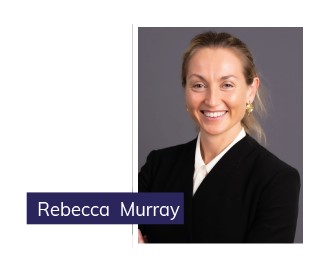
Newsletter
Autumn 2022

Dear Friends,
I hope you have had a great summer break and could take advantage of the removal of Covid restrictions to travel or meet friends and family.
Without Covid restrictions we were delighted to join in with our supporters on the London Legal Walk, where we enjoyed lovely weather and saw fantastic fundraising. And after being postponed for two years, a group of intrepid tax advisers are climbing Mt Kilimanjaro for ten days this September to raise funds for the tax charities.
Virtual events continue to be an important part of our fundraising calendar although the Covid restrictions have gone. We had an excellent online CPD event for tax practitioners in May, which CIOT kindly hosted, with our speakers Emma Chamberlain, Rebecca Murray and Heather Self focussing on private client and OMB issues. We look forward to our next CPD event on 13th September – when Rebecca Benneyworth, Peter Rayney and Carl Bayley are speaking on Current Issues for OMBs.
We hope you will be able to find time to support our events, by participation or sponsorship.
Your support enables us to help vulnerable people for whom the summer months, rather than bringing the opportunity to travel and relax, bring additional challenges – such as affording child care to cover the holiday period, increased food bills because they lose the benefit of free school meals; and if the 2020/21 tax return has still not been submitted, the total penalties arriving by post in August can be as much as £1,300.
It is no surprise then that those on the lowest incomes grappling with these costs in addition to the increasing cost of energy as well as more general inflationary price increases, look for additional sources of funds – and answering an advert placed online by a tax refund company seems like a good option. However, the helplines at TaxAid and Tax Help for Older People are receiving calls from taxpayers where the outcome is not always as expected. The claim may not result in an increase in their income if HMRC later disallow the claim or a refund is substantially lost by the amount retained by the refund company. Valerie’s article explains how some taxpayers are substantially disadvantaged by some unscrupulous refund companies.
We’re hugely grateful for your support. We’d love to hear your ideas for fundraising and ways that we can reach more people in need. And we look forward to seeing you at our upcoming events.
Stephen Banyard, Chair of TaxAid

Repayment Agents
In recent months our helplines have been busy with callers complaining about repayment agents. The business practices of some repayment agents can leave vulnerable taxpayers losing a significant proportion of their refund, or with a tax bill, and we have heard first hand from our callers the financial hardship this can cause.
Often people are tempted by online advertising that promises a tax refund and the repayment agent websites make it really easy to sign up to their service. In contrast, HMRC’s website can be difficult particularly for older taxpayers who may not have the ID documents needed to obtain a Government Gateway account. This is particularly frustrating as one of the most frequent claims by older eligible taxpayers is for marriage allowance, which incidentally is not on the list of common claims on HMRC’s website. Further confusion is created by letters that some of our callers have reported receiving several years after a PPI claim pushing them to make marriage allowance transfers because, “time is running out”.
The agents make the sign-up processes so simple that most of our callers are adamant that they did not sign up to an agent. One caller told us that he had put a few details into a website (clicked through from a Facebook ad) to check whether he was entitled to marriage allowance. He inputted some information to check, but when he realised, he wasn’t eligible he left the site. A few weeks later he was shocked to receive a letter from HMRC saying a repayment for, what he knew to be an incorrect claim, was being sent to the agent.
Frequently callers have unwittingly “signed” deeds of assignment covering the four previous tax years by ticking a terms and conditions box, meaning that any refunds for those years will be paid to the repayment agent even when the refund is being generated by HMRC’s PAYE reconciliation process.
So, this simplicity has a price, and the agents often charge a fixed fee as well as a percentage of the total refund. A typical example is a fixed fee of £100 plus 42% of the refund which for those on low incomes is very expensive compared with claiming free on HMRC’s website. HMRC will process the claim and check later, and if they disallow some of the claim they will write to the taxpayer and demand repayment of some of the refund. In the worst cases, the amount that HMRC are demanding is more than the refund (if anything) they received because of the high fees. Sometimes the repayment agent no longer exists, and the taxpayer can’t pay the tax now demanded by HMRC.
These are distressing calls as often there is little we can do to help because the tax position is correct. We have however been using the evidence from our helplines to inform our response to the recently issued HMRC consultation.
Your support for our work enables us to answer these calls, providing reassurance to our callers, helping them to understand the problem, assisting with claims for financial hardship where that is relevant and striving to effect change through our response to the consultation document.
Gillian Banks reflections of her time with The Charities

I wasn’t expecting to spend the first six months of my retirement in a new job, but what a wonderful experience it has been! There was a huge amount to learn, especially about the charities’ ways of interacting with HMRC that are so different from my previous life at PwC. And who knew that the pensions articles in double tax agreements for various countries were all so varied and complicated! (Foreign pensions are a frequent problem for our Tax Help beneficiaries.)
My most powerful observation is that our beneficiaries are battling with a tax system that is not designed for them. Vulnerable people with small self-employments, but whose income is too low to pay tax, are charged large penalties they have no hope of paying because they’ve been unable to navigate the system. Nurses and care workers are unknowingly drawn into “tax avoidance schemes” by rogue umbrella companies. Elderly couples are finding the benefit of their marriage allowance disappearing into the coffers of rogue repayment agents.
As well as doing what we can to help the individuals who come to us, we are working with HMRC to try to improve things, both in written responses to consultation documents and calls for evidence, and in meetings where beneficiaries’ stories can be brought to life. It is apparent that many at HMRC want to improve things for people like our beneficiaries but are subject to understandable legal and budgetary barriers. The next big challenge is of course “Making Tax Digital”, which so many of our beneficiaries will not be able to cope with.
As my time as Advice Manager draws to a close and we welcome Gail back from maternity leave, I look forward to helping in any way I can as a volunteer in the future and continuing to work with the lovely people at the charities.
Fundraising Achievements
What a fantastic and busy few months we’ve had. We have managed to raise £8,469 at the May CPD event. The London Legal Walk currently stands at £7,154 including gift aid. Penny and Stephens ‘No cheers for chairs’ lent challenge helped raise £5,458 including gift aid and finally the Deloitte Raffle raised £2,785. This brings us to a grand total of £23,866 for our Spring/Summer fundraising events. Thank you to all those that helped with our fundraising efforts in the last quarter.

Upcoming Events
Kilimanjaro Trek | September 2022
Our group of dedicated tax professionals (mostly current or retired CIOT members) and friends have signed up to complete the #KiliTax2022 sponsored challenge to ascend Mount Kilimanjaro, in aid of TaxAid and Tax Help for Older People.
Professional Development Events | September 2022
Three minute interview with Rebecca Murray

1. Could you tell us a little about yourself?
I am a barrister at Devereux Chambers, with a tax advisory and litigation practice in Private Client, corporate tax, and VAT. I left my role as Vice President in the tax department at JP Morgan in 2008 to pursue a career at the bar, prior to which I was a tax manager at Grant Thornton, where I qualified with the CTA (and ATT) and latterly worked in National Tax on client transactions and tax technical training for employees.
2. Why are you supporting the BtG campaign?
Charity begins at home! All those working in tax should be supporting the fantastic charities through the BtG campaign. The charities change lives by providing tax advice and support at critical times to those who wouldn’t otherwise be able to get it. The pandemic devastated the lives of millions of people and BtG was able to provide them with much needed assistance in accessing government support, especially in the CJRS and SEISS schemes. I am really proud to have assisted them in fundraising over the past few years to make this and other great work possible.
3. What sort of fundraising have you been involved in for BtG?
My first significant fundraiser was at the start of the pandemic, liaising with the CIOT, who hosted me and two other speakers (Emma Chamberlain and Emma Pearce) in a Budget Update webinar to its members. The event raised £15,000 and was so well received I have done one for the past three years (latterly with Heather Self and Emma Chamberlain). We have loyal attendees and supporters.
I also donate to BtG and participate enthusiastically in events hosted by other fundraisers (even when they involve quizzes, which I dislike hugely…).
4. What do you like best about fundraising?
Providing help in a seemingly hopeless situation: At the start of the pandemic, some supporters seemed to think that because physical events weren’t happening BtG would struggle to raise funds at all. I begged to differ and really enjoyed demonstrating what was possible by doing the first fund raising webinar at the start of the pandemic, causing many, many more fund-raising webinars to take place.
I have also enjoyed involving the tax profession in my fundraising for BtG and raising awareness for the charities.
5. What’s the worst part?
Um, nothing so far.
6. Do you have any tips for anyone else considering fundraising for BtG?
I like to find a win-win when asking people for their money (in any situation!). So I knew the first webinar was a success when a spokesperson for the CIOT said of them “we are able to provide valuable services to members while at the same time helping vulnerable people – a real win-win”.
